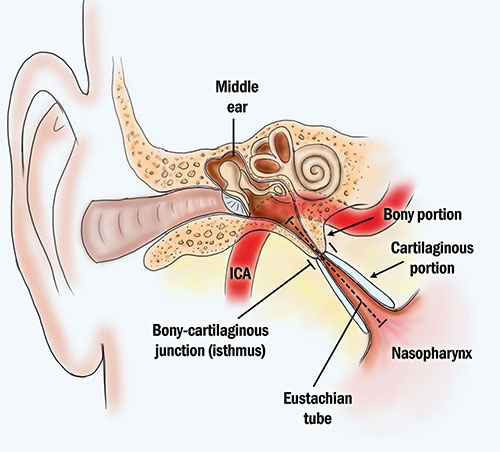When you hold in a sneeze air and pressure can travel up your eustachian tubes small passageways linking your throat to your middle ear and cause your eardrum to rupture

When You Hold in a Sneeze, Air and Pressure Can Travel up Your Eustachian Tubes and Cause Your Eardrum to Rupture

We all know the feeling of a sneeze coming on at the most inconvenient time. Whether you’re in a meeting, at a quiet library, or even just enjoying a peaceful moment, the urge to sneeze can be quite overpowering. But did you know that holding in a sneeze could have serious consequences? It turns out that when you hold in a sneeze, the air and pressure build-up can travel up your Eustachian tubes, small passageways that connect your throat to your middle ear, and potentially lead to a ruptured eardrum.

Your Eustachian tubes play a vital role in maintaining equal air pressure on both sides of your eardrum. They help regulate the pressure, preventing discomfort and potential damage to your ears. Normally, during a sneeze, the released air exits forcefully through your nose and mouth, relieving the pressure build-up. However, when you suppress or hold in a sneeze, that force has nowhere to escape, and it can seek alternative pathways.
One such pathway is through the Eustachian tubes. If the pressure from the sneeze is strong enough, it can force air up these tubes and into your middle ear. This sudden influx of air can create a significant increase in pressure within the middle ear. As a result, the delicate eardrum, which separates the middle ear from the external ear canal, may become overstretched and ultimately rupture.
Research published in the British Medical Journal highlights the potential dangers of holding in a sneeze. In a case study, a 34-year-old man tore his pharynx and ruptured his eardrum by clamping his nose and mouth shut during a sneeze. The incident resulted in immediate pain, a swollen neck, and hearing loss that lasted for several weeks. The study underscores the importance of allowing a sneeze to occur naturally, without inhibition.
The Eustachian tubes are not designed to handle the forceful release of air associated with suppressing a sneeze. They are intended to regulate pressure slowly and smoothly. When air is forced through these narrow passageways, it can cause severe damage, leading to discomfort, hearing problems, and potentially even permanent hearing loss.
So, the next time you feel a sneeze coming on, it’s best to let it out. Suppressing or holding in a sneeze might be seen as polite or considerate in certain situations, but the potential risks to your ears and overall health far outweigh any perceived benefits. Embrace the natural reflex of sneezing, and let the release happen without inhibition. Take care of your ears, protect your delicate eardrums, and promote overall well-being by allowing yourself to indulge in the simple act of sneezing.
Source: PubMed
Share
Related Posts
Quick Links
Legal Stuff

